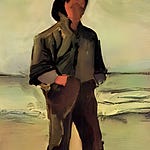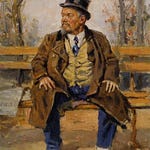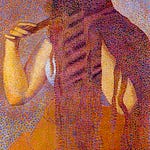Welcome to Sundays with Seneca on the Perennial Meditations podcast. Join the search for ancient lessons for modern life in the writing and Stoic philosophy of Lucius Annaeus Seneca.
In a letter known today as On Conquering the Conquerer, Seneca wrote,
Just as in a ship that springs a leak, you can always stop the first or the second crack, but when many holes begin to open and let in water, the gaping hull cannot be saved; similarly, in an old man’s body, there is a certain limit up to which you can sustain and prop its weakness. But when it comes to resemble a decrepit building, when every joint begins to spread and while one is being repaired another falls apart—then it is time for a man to look about him and consider how he may get out.
But the mind of our friend Bassus is active. Philosophy bestows this boon upon us; it makes us joyful in the very sight of death, strong and brave no matter in what state the body may be, cheerful and never failing though the body fail us. A great pilot can sail even when his canvas is rent; if his ship be dismantled, he can yet put in trim what remains of her hull and hold her to her course. This is what our friend Bassus is doing; and he contemplates his own end with the courage and countenance which you would regard as undue indifference in a man who so contemplated another’s.
This is a great accomplishment, Lucilius, and one which needs long practice to learn—to depart calmly when the inevitable hour arrives. Other kinds of death contain an ingredient of hope: a disease comes to an end; a fire is quenched; falling houses have set down in safety those whom they seemed certain to crush; the sea has cast ashore unharmed those whom it had engulfed, by the same force through which it drew them down; the soldier has drawn back his sword from the very neck of his doomed foe. But those whom old age is leading away to death have nothing to hope for; old age alone grants no reprieve. No ending, to be sure, is more painless; but there is none more lingering. …
I know that all this has often been said and should be often repeated; but neither when I read them were such precepts so effective with me, nor when I heard them from the lips of those who were at a safe distance from the fear of the things which they declared were not to be feared. But this old man had the greatest weight with me when he discussed death and death was near.
For I must tell you what I myself think: I hold that one is braver at the very moment of death than when one is approaching death. For death, when it stands near us, gives even to inexperienced men the courage not to seek to avoid the inevitable. …
Death has its fixed rule—equitable and unavoidable. Who can complain when he is governed by terms which include everyone? The chief part of equity, however, is equality.
But it is unnecessary at the present time to plead Nature’s cause; for she wishes our laws to be identical with her own; she but resolves that which she has compounded, and compounds again that which she has resolved.
Moreover, if it falls to the lot of any man to be set gently adrift by old age—not suddenly torn from life, but withdrawn bit by bit, oh, verily he should thank the gods, one and all, because, after he has had his fill, he is removed to a rest which is ordained for mankind, a rest that is welcome to the weary. …
And if we are willing to examine critically the various causes of our fear, we shall find that some exist, and others only seem to be. We do not fear death; we fear the thought of death. For death itself is always the same distance from us; wherefore, if it is to be feared at all, it is to be feared always. For what season of our life is exempt from death?
But what I really ought to fear is that you will hate this long letter worse than death itself; so I shall stop. Do you, however, always think on death in order that you may never fear it. Farewell.
—
Thank you for listening; I hope you found something useful.
Until next time, be wise and be well,
















Seneca | On Conquering the Conquerer